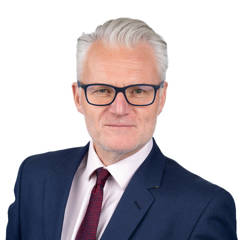17/04/2023
Medical tourism is on the rise, with the numbers of patients travelling abroad not only for cosmetic procedures but also elective surgery and fertility treatments increasing year on year. Reasons for this are multifactorial, but include cost, access to treatment and the lure of being able to “add on” medical procedures to a holiday.
The Foreign, Commonwealth & Development Office (FCDO) has now even added in a warning about health tourism to Turkey, noting that they are aware of 22 British nationals who have died in Turkey since 2019 following medical tourism visits and urging that those travelling for treatment should first discuss their plans with UK health professionals (Health - Turkey travel advice - GOV.UK (www.gov.uk)).
Clarke v Kaleciński and others
One example of “health tourism gone wrong” which has reached the Courts is Clarke v Kaleciński and others [2022] EWCH 488 (QB). This was a claim for damages for personal injury arising out of cosmetic surgery performed in Poland. The Claimant brought claims against the surgeon (the First Defendant), the clinic where the operations were carried out (the Second Defendant) and the insurer of the clinic (the Third Defendant) in both contract and tort. Only the Claimant and Third Defendant were represented at trial.
Mr Kaleciński, a Polish national, was registered with the GMC in the UK and Poland’s equivalent. On his website, he stated that he had been trained in the UK and his initial consultation with the Claimant took place in England. The Claimant thereafter travelled to Poland to have breast augmentation surgery and thigh lipsuction. She was allowed to go back to her hotel the morning after surgery, but was asked to attend the clinic every day for 5 days to be checked. Each day, she reported increasingly agonising pain and fever, for which she was given antibiotics and Tramadol. She was returned to surgery on day 4 where the breast implants were removed and drains inserted. The following day she was discharged and flew back to the UK, still very unwell. On her arrival, she was taken straight to A&E and was diagnosed with severe sepsis. After a period in ITU and at a specialist centre, she was discharged almost a month after her original surgery. The Claimant relied on expert evidence from a plastic surgeon who was of the opinion that practically all aspects of the care fell below the required standard, evidenced by the condition the Claimant found herself in when she returned to the UK.
The trial
Before trial, it was agreed that English law applied to the claim in contract and Polish law to the claim in tort. There were, however, issues outstanding as to who were parties to the contract and the standard of care against which the First Defendant should be measured.
As to the first issue, the Judge held that there was a contract between the Claimant and both the First and Second Defendants. There was a reference to “our team” on the website and the Claimant was provided with care by not only Mr Kaleciński, but also nurses and other doctors (notably a junior surgeon and an anaesthetist). Just one payment was made in respect of all of the services provided and it was held that the parties “jointly promised” to provide a “package of surgery and care” and were “jointly and severally making promises to do that”.
As to the second issue, it was argued by the Third Defendant that, analogous to package holiday claims, evidence of local standards of medical care was required. The Judge sidestepped this issue, as she found that there was an implied term in the contract that the First Defendant would operate to the standard of a UK surgeon (through representations on his website which she held were not “mere puffs”). She did, however, indicate that she “inclined strongly” to the view that package holiday analogies were not applicable – suggesting that evidence of local standards is not actually required, perhaps a surprising comment where even the FCDO acknowledges that “standard of medical facilities and available treatments vary widely around the world”.
Conclusion
As can be seen from this one example, cross-border cases such as this bring their own challenges, both legal and procedural: questions such as which courts have jurisdiction to hear the claim, who should be a party to the claim, which law is applicable both in tort and contract and whether evidence of local standards of medical care is required.
But even before that, there are potential issues arising out of medical tourism for medical professionals in the UK – doctors may be asked for advice before decisions are made (as the FCDO recommends), they may be asked to complete medical history forms to be passed on before travel and may be faced with dealing with post-operative complications. All of these bring challenges and risks in their own right.
Not only that, but this case has potentially wider ramifications in terms of the liabilities of surgeons vs clinics. The Judge took quite a clear view that, despite lack of documentary evidence, the Claimant had contracted with both the surgeon and the clinic and that both were responsible for the injuries caused. She did not look to differentiate between the losses and looked at the two parties together, deeming they were jointly and severally liable for the package of care provided.
It remains to be seen whether or not future cases follow this one, but this perhaps seems slightly at odds with the recent decision of Mabey v Mr Kulkarni (1) and St Joseph’s Hospital (2), where the Judge held that the hospital was not liable for any losses sustained where there is an independent surgeon whether by way of vicarious liability, contractually or via a non-delegable duty. You can read more about that case here.
What is certain, though, is that cross-border claims are likely to be the subject of more judicial scrutiny, as more patients choose to travel for their healthcare.




